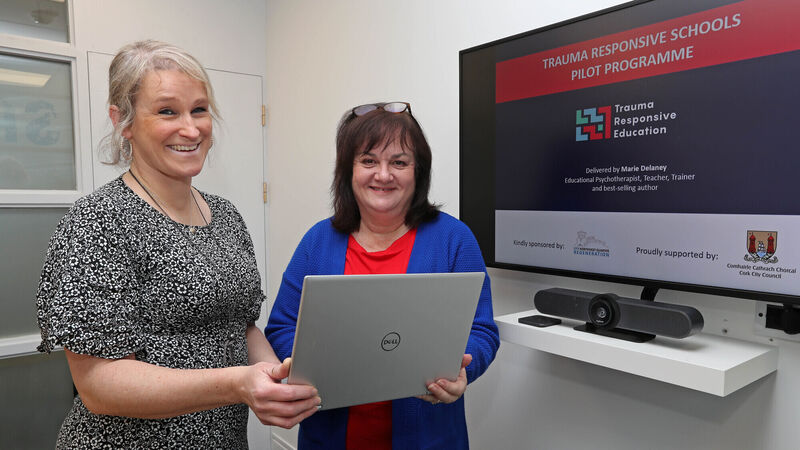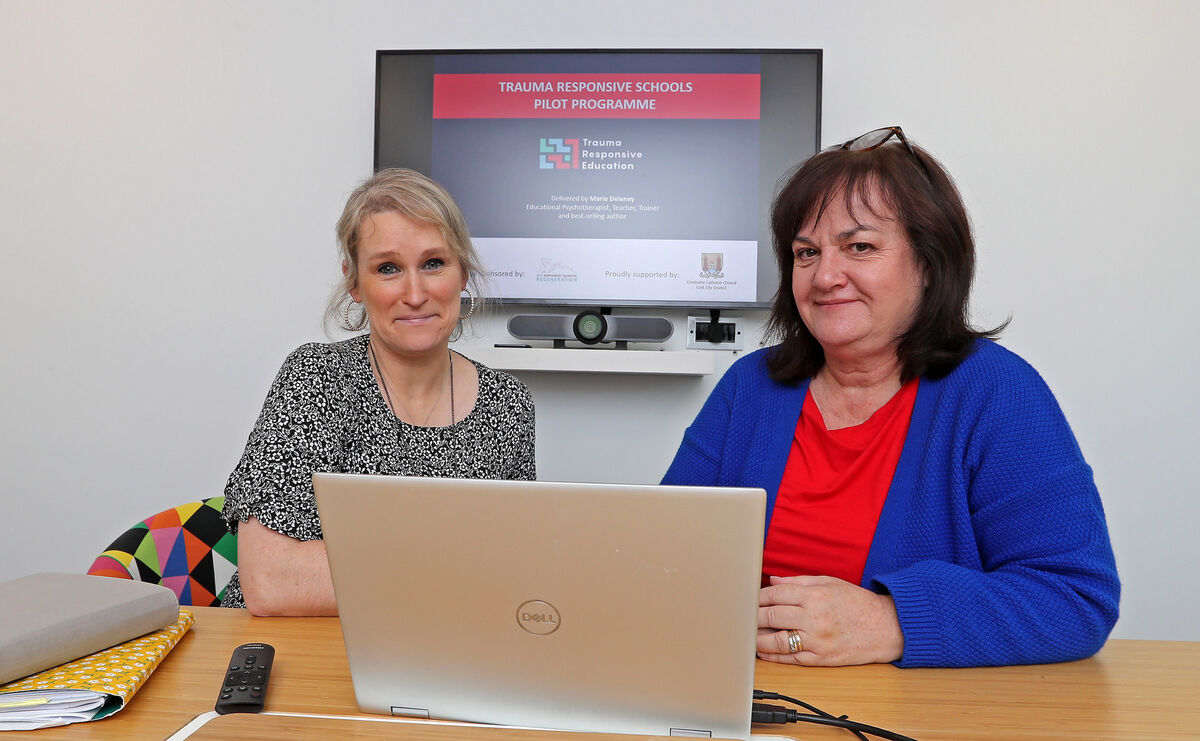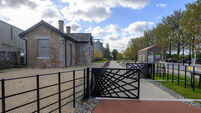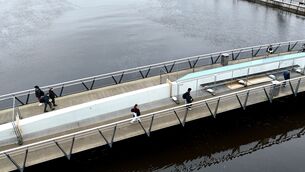Demand on rise for child trauma service in Cork

Co-Founders / Directors at Trauma Responsive Education with Marie Delaney and Lisa McSherry , at the Republic of Work, South Mall, Cork. Picture: Jim Coughlan.
Marie said it can be helpful for school staff to have awareness around challenging behaviours demonstrated by children.
“There was one school who told us about how part of the building had been closed off,” Marie said.
“The students were told not to go down there but the Ukrainian students went down to have a look. The school was shocked because they had been so well behaved prior to this. Nonetheless, for these students to feel safe they needed to know what was down there.
“In their world it could have been a big threat but it’s understandable that this might be mistaken for defiance. This might not be what you want in a school but it’s important to understand where it’s coming from. In this situation, the children’s experiences of war taught them that nothing comes from waiting and you have to push yourself to the front of the queue.”
Trauma, Lisa explained, can take many forms.
“If gardaí have been there the night before to take someone away then the child’s mind is going to be preoccupied,” Lisa said.
“It is difficult to respond in the moment when you have a class of 30 children in front of you. The idea is to shift the mindset.”
She spoke of how traumatised children are at a significantly higher risk of developing an addiction later in life.
“Safety connection and belonging are the main needs of someone affected by trauma. You can belong to your school community and feel connected to the people in it. If you haven’t got an attachment you are going to attach to something. That attachment could be a gang or a drug depending on the extent of the trauma.”
Marie said she feels that diversity is currently lacking in the education system.
“This isn’t the life a lot of teachers have had,” Marie said. “A major issue is the lack of diversity in teaching.

“They have succeeded in the system but children with trauma have had a very different experience.
“For many children, the system in itself is traumatic because it doesn’t suit everyone.”
She is urging people to put aside their judgement.
“One has to look at the pattern of behaviour a child might have got used to from adults,” Marie said.
“You have to be careful not to put any blame on parents or families because everyone is the doing the best they can with the resources they have.”
Ms Delaney described how trauma in children is very often misunderstood.
“Sometimes schools don’t understand what trauma is. When many people hear of trauma relating to children they think of kids who have come from a war zone or who were involved in a serious accident.
“It’s the other stuff going on underneath the surface that causes the same reactions in a child’s brain.
“While issues such as bereavement, domestic abuse, or separation can affect any family we can’t ignore that poverty also has a devasting effect. Scarcity of food is essentially a trauma and we need to recognise that.”
She warned that while some well-meaning incentives might benefit some children, they can often isolate children with trauma.
“Attendance awards might seem great but there are children who missed days because they had to travel long distances to visit their daddy in prison or had to visit a parent in hospital. Nothing is ever as clear cut as any of us — who are not fully involved in it — think.”
Meanwhile, Lisa urged teachers and SNAs not to blame themselves for a child’s trauma.
“Staff can sometimes get upset because they feel they have to fix the children’s lives but it’s not about fixing them,” Lisa said.
“It’s really about someone being there for you to hear your story and see the good in you. We have to remember that while a child’s protective behaviour may be disruptive it might have been keeping them alive outside of the safety of a school setting.
“Teachers and SNAs might have their own biases. Like all of us they are only human, but it’s about catching yourself and stopping it when you recognise that thought process.”
- To find out more or to contact
Trauma Responsive Education visit https://trauma-ed.com.







 App?
App?


